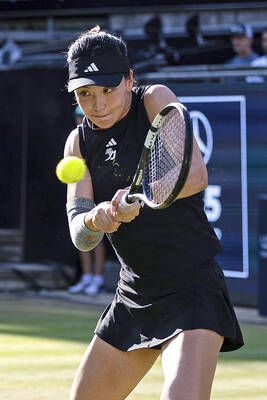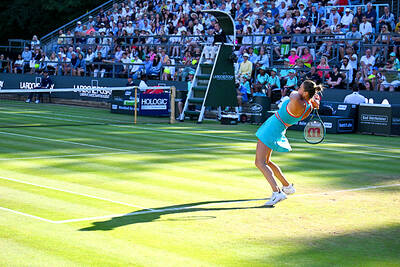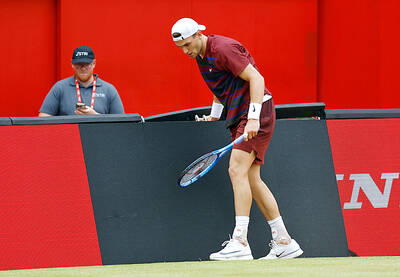What began as a grassroots online campaign featuring a schoolboy has grown into a mass hashtag protest against Russia’s exclusion from the Winter Olympics — backed by what appear to be fake Twitter accounts and users connected to past pro-Kremlin causes.
Many ordinary Russians are undoubtedly upset about an International Olympic Committee (IOC) decision to ban Russia’s team from the Games in Pyeongchang, South Korea, in February due to “unprecedented” doping violations.
However, this public sentiment has been amplified by apparently automated or semi-automated Twitter accounts known as “bots” and “trolls,” according to analysis of social media traffic by Reuters and a British-based security researcher.
Russian President Vladimir Putin dismissed the IOC’s decision on Tuesday as “orchestrated and politically motivated.”
State media have reported extensively on the #NoRussiaNoGames protests, saying they are covering a public backlash just as any other news outlet would do and denying their work is orchestrated.
However, researcher Ben Nimmo said that while much of the public support for Russian athletes online was authentic, the Twitter activity showed not all of it can be taken at face value.
“What we’ve got here is a small, but genuine hashtag campaign, which is being exaggerated and amplified by Russian state propaganda outlets to make it look like the campaign is huge and an upwelling of popular anger,” said Nimmo, who works for the Digital Forensic Research Lab of the Washington-based Atlantic Council think tank.
#NoRussiaNoGames first appeared on Russian social networking site VK, notably in a post by a St Petersburg schoolboy protesting against lifetime Olympic bans handed to six Russian cross-country skiers last month for alleged doping violations.
The post included a video appeal from one of the banned skiers’ mothers, which was viewed more than 150,000 times.
Data for views and shares on VK is not publicly available, but on Twitter, the hashtag received little attention until the Olympic ban and garnered just less than 1,700 tweets on Tuesday before the IOC announcement.
Nimmo said data he has collected shows bots and trolls then helped to drive that number to more than 9,000 in the hours following the decision.
“It’s a good human interest story, it’s an emotional boy saying how terrible unfairly Russia is being treated. It fits the state narrative perfectly,” he said.
One of the accounts driving activity around the hashtag was @ungestum, which lists its location as the Russian city of Orenburg. The account has sent 238 tweets consisting of just the hashtag to other users since the ban was announced, indicating that these were computer-generated.
However, @ungestum has also sent tweets containing text in Russian written by a person, suggesting that the account might be semi-automated.
The campaign was also heavily promoted by a group of at least five accounts that tweeted the hashtag multiple times alongside links to unrelated Russian-language news articles and repeatedly reposted tweets from each other.
Reuters was unable to establish definitively that @ungestum or any of the related accounts were sending automated tweets, but the volume and content of the tweets fits a pattern of behavior ascribed to bot accounts by the Oxford Internet Institute.
The institute’s Computational Propaganda team defines a bot as an account that posts 50 times a day. @ungestum has tweeted an average of 47 times a day since the account was created in October.
State media outlets including RT, Sputnik and the Russian Ministry of Defense’s Zvezda television channel all reported on the campaign and the hashtag received multiple endorsements from Russian athletes and celebrities.
Igor Starkov, the schoolboy’s father, said no one had asked his son to start the campaign and it was supported by real people all over Russia.
“It is only our idea, based on personal concerns for the fortunes of the sportsmen and their families,” he said.
One of the accounts tweeting the hashtag multiple times was operated by a person rather than a computer program, Reuters established, but this account — in the name of Oksana — has been associated with past pro-Kremlin campaigns.
The account has been active in campaigns praising Russian President Vladimir Putin and attacking critics of Russia which were launched by the AgitPolk group. @AgitPolk is one of 2,752 accounts that have been identified by Twitter as tied to Russian operatives and suspended.
When asked why she participated in the campaigns, Oksana said: “I completely support our President V.V.Putin ... and respond to all attacks in his direction with arguments.”
Oksana, who declined to give her family name or provide additional evidence of her identity, added: “How do you not understand that the more external pressure there is on Russia, the more united we are around our leader!”

Twelve days after winning her second Grand Slam title at the French Open, Coco Gauff fell at the first hurdle on grass in Berlin on Thursday as beaten Paris finalist Aryna Sabalenka advanced to the quarter-finals. Recipient of a first round bye, American Gauff lost 6-3, 6-3 to Chinese qualifier Wang Xinyu as world number one Sabalenka beat Rebeka Masarova 6-2, 7-6 (8/6) in her second round tie. Winner of 10 main tour titles, including the US Open in 2023 and the WTA Finals last year, Gauff has yet to lift a trophy in a grass-court tournament. “After I won the first

Sergio Ramos on Tuesday outfoxed two Inter players and artfully headed home the first goal for Monterrey at the FIFA Club World Cup. The 39-year-old Ramos slipped through the penalty area for the score just as he did for so many years in the shirts of Real Madrid and Spain’s national team, with whom he combined smarts, timing and physicality. Ramos’ clever goal and his overall defensive play at the Rose Bowl were major factors in Monterrey’s impressive 1-1 draw against the UEFA Champions League finalists in the clubs’ first match of the tournament. “There is always a joy to contribute to the

Top-ranked Aryna Sabalenka staged a “crazy comeback,” saving four match points before beating Elena Rybakina 7-6 (6), 3-6, 7-6 (6) in the quarter-finals of the Berlin Open on Friday. Sabalenka was 6-2 down in the final-set tie-breaker, but won six straight points to reach her eighth semi-final of the season. “Elena is a great player and we’ve had a lot of tough battles,” Sabalenka said. “I have no idea how I was able to win those last points. I think I just got lucky.” “I remember a long time ago when I was just starting, I won a lot of matches being down

While British star Jack Draper spent the past week trying to find rhythm and comfort in his first grass tournament of the season at the Queen’s Club Championships in London, Jiri Lehecka on Saturday bulldozed everything in his path. After more than two furious hours of battle, their form was reflected in the final scoreline as Lehecka toppled a frustrated Draper, the second seed, 6-4, 4-6, 7-5 to reach the biggest final of his career, against Carlos Alcaraz. Lehecka is also the first Czech to reach the men’s title match at Queen’s since Ivan Lendl lifted the trophy in 1990. Draper, who